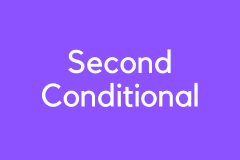Subordinating Conjunction of Time
Learn how to use the subordinating conjunction of time in English.
Can you answer these grammar questions correctly?
Subordinating Conjunctions of Time
Point 1: Subordinating conjunctions of time show how clauses relate according to time.
- The meeting started before we got there.
- He left by the time we arrived.
- Call me when you get home.
- I will call you after I finish.
Point 2: Before and by the time show that one action happens earlier than another.
- I wake up before the sun rises.
- She does yoga before she goes to work.
- My boss is in the office by the time I get there.
- I should be there by the time you arrive.
Point 3: When, as soon as, once, and until happen at or around the same time as another action.
- I feel sad when it rains.
- She calls me as soon as she gets home.
- Flip the pancake once it starts to bubble.
- Please stay here until I call you.
Point 4: After shows that one action happens later. As soon as, right after, and just after can have the same meaning.
- I called her after I got home.
- I saw him as soon as the meeting ended.
- I saw him right after the meeting ended.
- I saw him just after the meeting ended.










